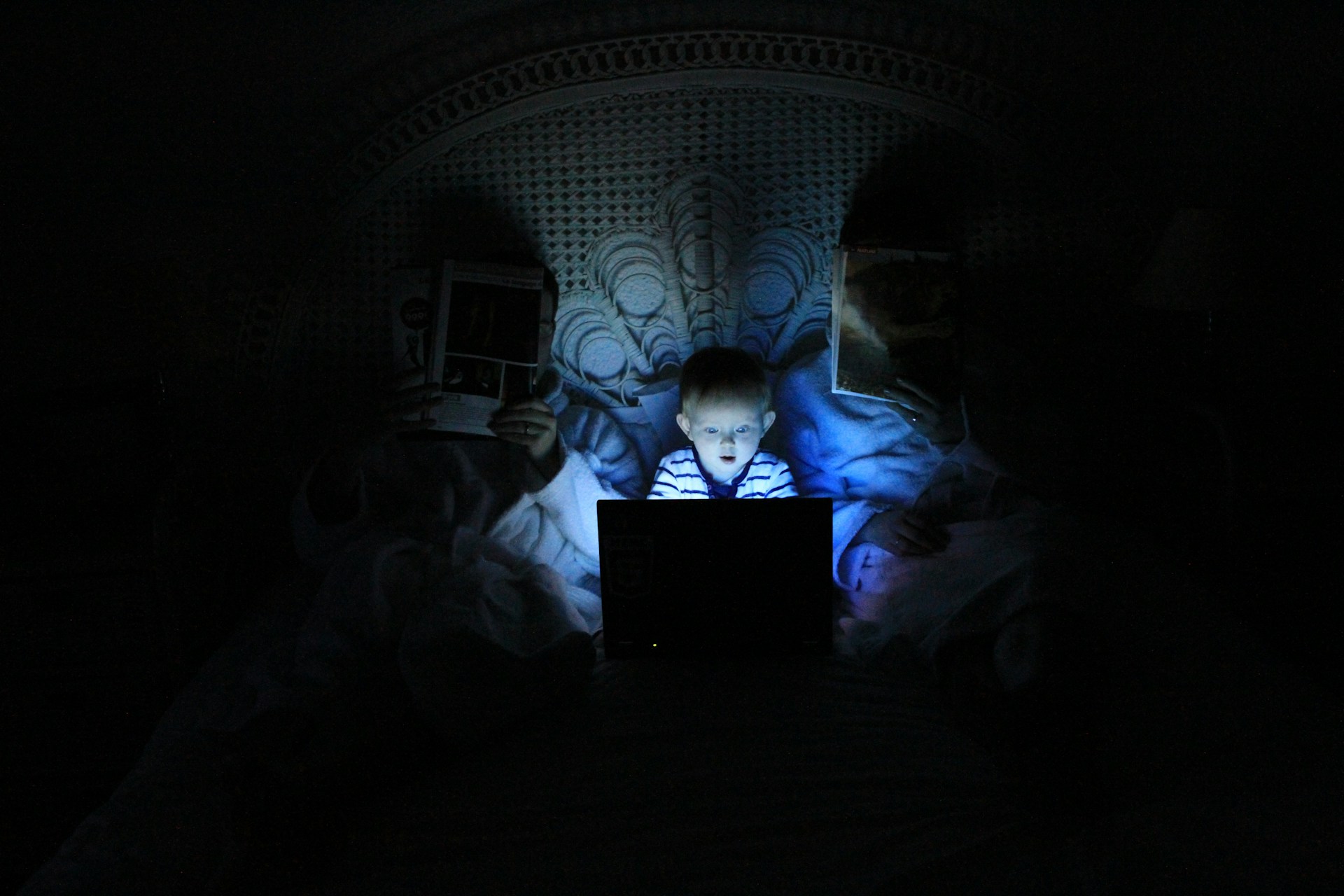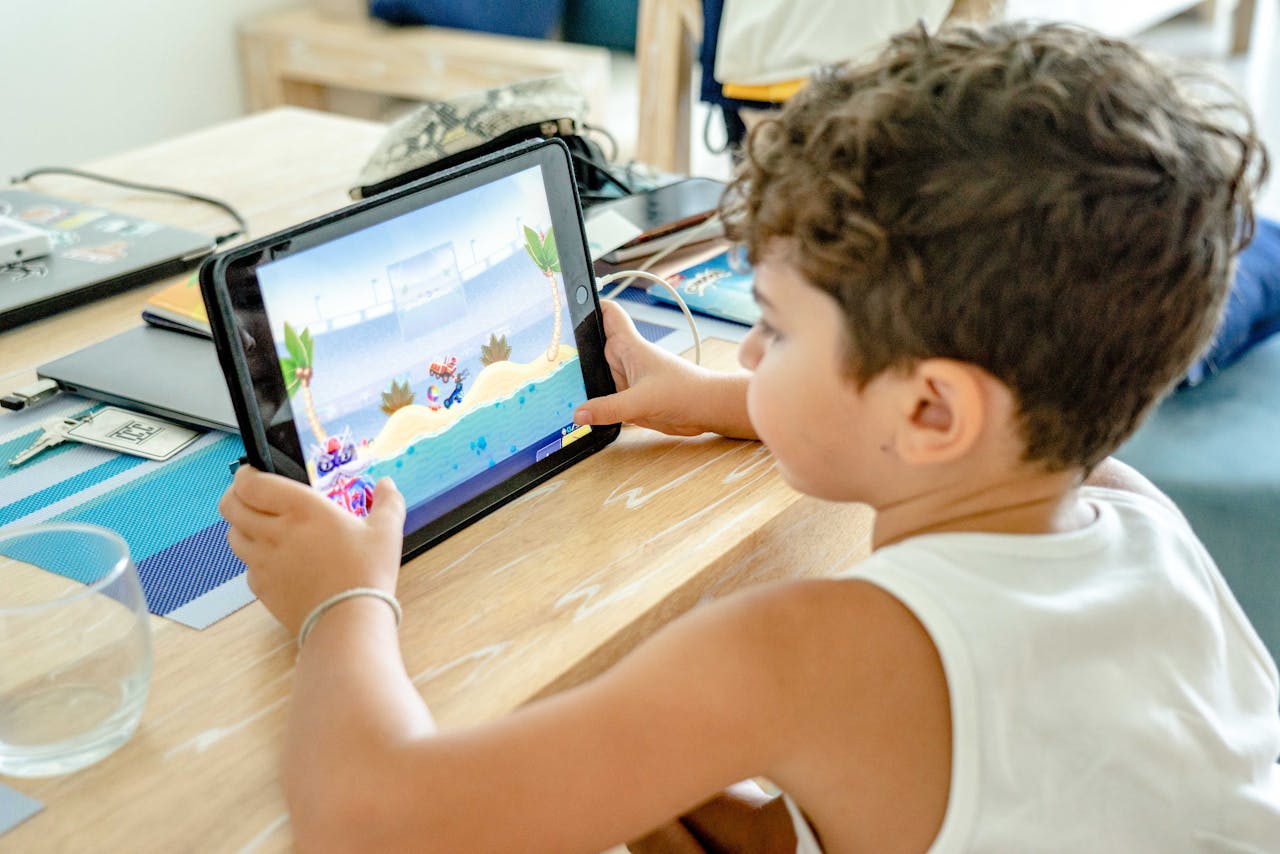Is Technology Really a Force For Good?
Technology has simplified our lives in countless ways, providing entertainment, information, and ease of communication. However, exposing children to too much technology too fast can pose some serious dangers to their cognitive development. Here are some of the negative effects of technology that'll make you want to shun society and raise them in a hippie commune.
 Photo by Ludovic Toinel on Unsplash
Photo by Ludovic Toinel on Unsplash
1. Shortening Their Attention Spans
Technology is interactive and instant in nature. When kids grow accustomed to this kind of stimulation, it makes them lack patience for things that take a little longer like reading a book and learning a complex skill.
 Photo by Ketut Subiyanto on Pexels
Photo by Ketut Subiyanto on Pexels
2. Hindering Their Creativity
Remember playing make-believe games when you were little? This is something younger generations might never do because they’re spending so much time with technology. More screen time means less time spent creating and imagining.
 Photo by Zaur Giyasov on Unsplash
Photo by Zaur Giyasov on Unsplash
3. Worsening Their Critical Thinking Skills
Critical thinking or the ability to reason, reflect, and draw conclusions is hindered by technology. This type of thinking comes about naturally in everyday life, but not if you’re spending all your time behind a screen. It’s learned by imagining, observing, acting, and judging in real life.
 Photo by Collin Guernsey on Pexels
Photo by Collin Guernsey on Pexels
4. Worsening Their Sleep Quality
Studies have found a link between screen time, particularly before bed, and poor sleep quality. With bad sleep comes a whole slew of cognitive issues including impaired memory and learning.
 Photo by Annie Spratt on Unsplash
Photo by Annie Spratt on Unsplash
5. Hurting Their Social Skills
Although all your kids are probably on social media, that type of social interaction is just not the same as in-person. If they’re spending all their time talking to people online, they’ll be awkward and uncomfortable in face-to-face interactions.
 Photo by Vika Glitter on Pexels
Photo by Vika Glitter on Pexels
6. Exposing Them To Misinformation
We all know how rampant misinformation is on the internet, but especially as children, it’s hard to decipher between true and false. Studies have shown kids start believing in conspiracy theories at age 14 so disinformation campaigns often target young consumers.
 Photo by Jorge Franganillo on Unsplash
Photo by Jorge Franganillo on Unsplash
7. Overstimulating Them
Overstimulation, also referred to as “sensory overload” affects our kids’ ability to process all they’re taking in. Overstimulation causes the brain to be in a state of constant stress and can cause learning and behavioral disorders.
 Photo by Oleksandr P on Pexels
Photo by Oleksandr P on Pexels
8. Reducing Their Empathy
When kids spend a lot of time looking at a screen, that means they spend less time learning non-verbal cues. In turn, they have a harder time understanding others and are less compassionate.
 Photo by Ryan Franco on Unsplash
Photo by Ryan Franco on Unsplash
9. Reducing Their Individuality
Technology has advanced globalization in a big way–your kids might have just as much in common with a kid in Korea as with their own neighbor. They’re likely wearing the same clothing, listen to the same music, and speak the same language but it also breeds a certain sameness that may take away from your kid forming a truly original personality.
 Photo by Christopher Luther on Unsplash
Photo by Christopher Luther on Unsplash
10. Addicting Them To Instant Gratification
In today’s world, we want things to come quick and easy. Being exposed to platforms like Instagram at a young age addicts your kids to the cheap dopamine rush that comes from getting “likes” and having shallow online interactions.
 Photo by bruce mars on Unsplash
Photo by bruce mars on Unsplash
11. Reducing Their Memory Retention
With technology, practically everything you would ever want to know is available at your fingertips. This is convenient, sure, but it also makes our memory lazy because you no longer feel the need to retain information.
 Photo by Julia M Cameron on Pexels
Photo by Julia M Cameron on Pexels
12. Worsening Their Writing Skills
With tools like spell check and Grammarly, there isn’t much need to learn how to write properly anymore, but that makes your kids extremely dependent. What’s more, they probably don’t know how to write things by hand very well and you can just forget about cursive.
 Photo by Tong Nguyen van on Unsplash
Photo by Tong Nguyen van on Unsplash
13. Reducing Their Mental Math Skills
Not that a lot of adults are great at this either, but kids are probably even worse. It might be convenient to grab your smartphone and just type your equation into the calculator but studies have shown learning to do mental math helps kids develop reasoning and visualization skills.
 Photo by Joshua Hoehne on Unsplash
Photo by Joshua Hoehne on Unsplash
14. Weakening Their Problem-Solving Skills
Although technology simplifies life in many ways, an overreliance on it can deteriorate complex problem-solving skills through lack of use. There are thing in life you can’t just google for the answer, and in these cases, it’s important to have good problem-solving skills which take patience and perseverance to develop.
15. Delaying Their Language Skills
Studies have shown that exposing very young children to screens can delay their language skills. This is because screen time impacts their still-developing brain structures, interfering with their cognitive abilities.
16. Reducing Their Physical Activity
When your child is sitting and looking at a screen all day, they aren’t getting any exercise. This affects their physical fitness and can cause obesity which in turn hurts their brain development.
 Photo by Ketut Subiyanto on Pexels
Photo by Ketut Subiyanto on Pexels
17. Turning Them Into Passive Consumers
When your kids are reliant on screens for entertainment, they become passive consumers, absorbing information without actively engaging with it. This overcrowds their minds with useless information until they have trouble forming thoughtful ideas.
 Photo by Amateur Hub on Pexels
Photo by Amateur Hub on Pexels
18. Worsening Their Reading Skills
Unless your kids are spending their screen time reading e-books, (they’re not) their reading skills are likely suffering. Plus, studies have shown digital reading is worse for comprehension than print reading.
19. Making Them Spend More Time Indoors
In addition to encouraging active play which is great for both creativity and physical health, being outside exposes your kids to vitamin D which is vital to neuron development. Being outdoors also helps your kids develop independence and openness.
 Photo by Adrian Swancar on Unsplash
Photo by Adrian Swancar on Unsplash
20. Lowering Their Self-Esteem
It’s been well documented that technology, particularly social media, creates self-esteem issues in kids who compare themselves to often unattainable images. Low confidence can inhibit your child from striving and believing in themselves, stunting their future successes.











